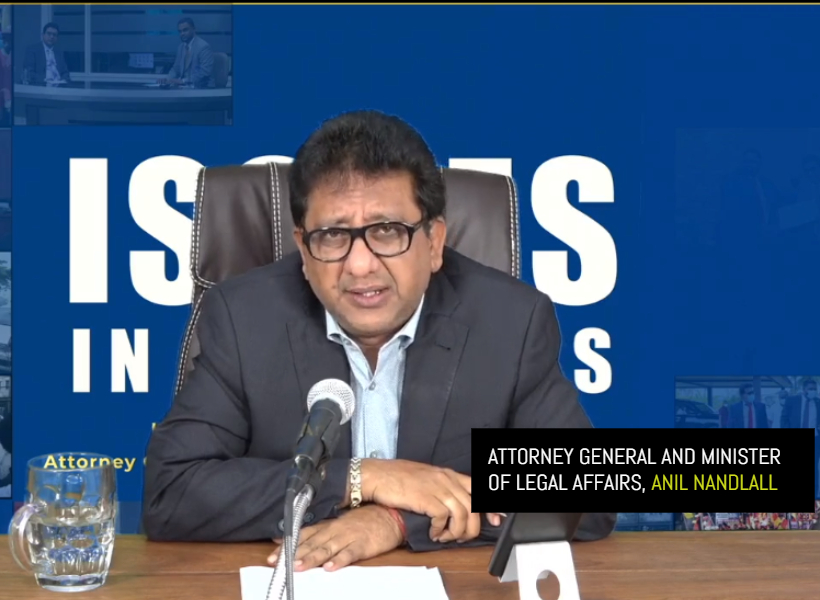The main Parliamentary Opposition has turned to the High Court to quash the suspension of eight of its legislators by a parliamentary committee for an unruly House protest last year. The A Partnership for National Unity + Alliance for Change (APNU+AFC) initiated litigation earlier this month, saying that its Members of Parliament (MPs) were not afforded the opportunity to justify their attempt to thwart the December 2021 passage of the Natural Resources Fund (NRF).
But Attorney General and Minister of Legal Affairs, Anil Nandlall has predicted that no reprieve will be granted to those MPs. In fact, he has opined that the court has no jurisdiction to even entertain the case. According to him, the Judiciary and the Parliament (Legislature) are two very distinct, independent branches of government that rule over their own domain and prohibit external intervention unless there are instances where the Constitution is violated.
“It’s only if Parliament violates the Constitution, then the Court can intervene. Parliament has an independent aura that authorises it to be the judge of its own business, not only to regulate its own business but to be the judge of its own business. Parliament, in this independent aura, has the authority to discipline its own officers, and it has the authority to enforce its own disciplinary code,” he noted.
Since the matter is about challenging disciplinary actions within the context of the Parliament, the Privileges Committee serves as a quasi-judicial court. The committee, and not the court, is tasked with that responsibility because MPs are immune to litigation their conduct during House proceedings may attract.
The Standing Orders, he argued, exist to keep MPs in line, and the Privileges Committee is the enforcer. He added that any challenge to a Privilege Committee decision would delve into the enforcement of the Standing Orders. Since Standing Orders are rules and not laws, the Court cannot enforce them.
“When Standing Orders are violated, they can’t be enforced in a Court of Law because a Court of Law is not a Court of Standing Orders; Standing Orders are not law – they are merely rules of a parliament. They are not passed by the Parliament in its legislative functional power, they are passed by the Parliament exercising an administrative function, and that is why a court has no jurisdiction to enforce a Standing Order. Courts enforce laws!”
Dissatisfied with the suspensions, the APNU+AFC staged a boycott of the last House Sitting, denying their scrutiny of a government-tabled, multibillion-dollar supplementary request to augment developmental works.
During the passage of the NRF, APNU+AFC MPs blew whistles and shouted in the House. They were also reprimanded for attempting to remove the symbolic mace, verbally assaulting a Parliament Office staffer and damaging public property.
Those MPs suspended were Sherod Duncan, Christopher Jones, Ganesh Mahipaul, Vinceroy Jordan, Annette Ferguson, Natasha Singh-Lewis, Maureen A. Philadelphia, and Tabitha Halley.











